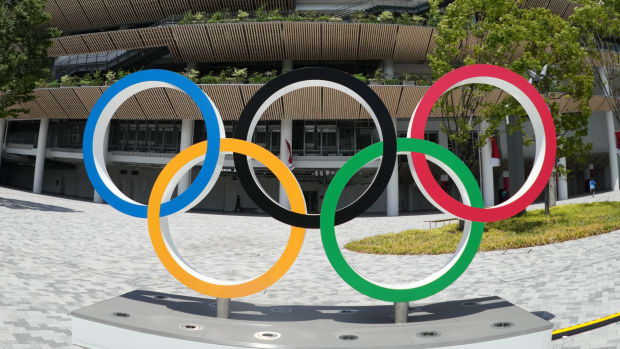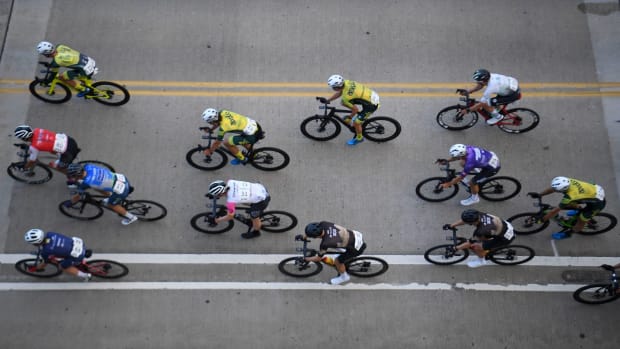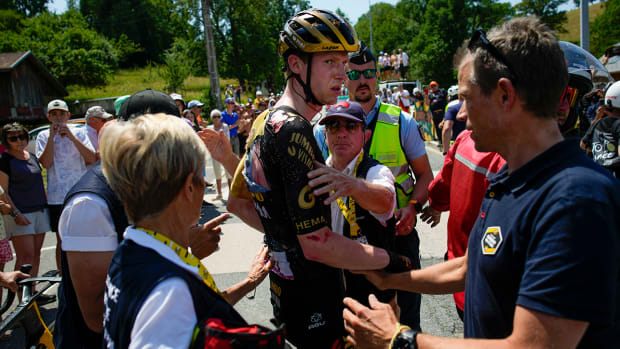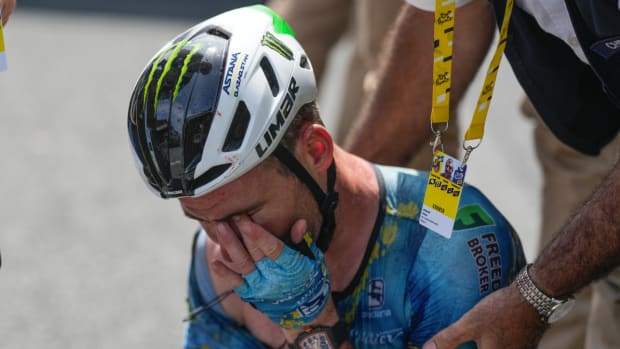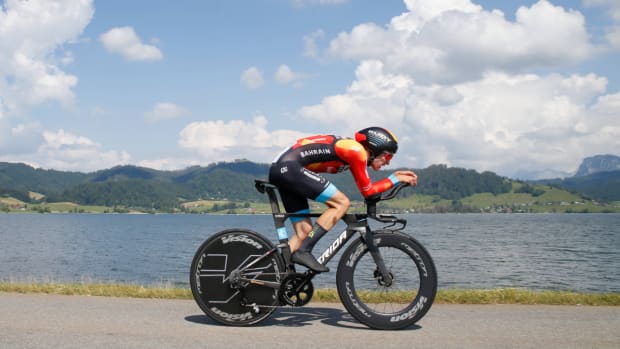Column: Important not to let Armstrong ruin Tour again
LES BLAYES, France (AP) In his biography, Chris Froome recounts how his two elder brothers used to amuse themselves by locking him in a dog kennel with an angry, scratching turkey. ''Only when I was in absolute floods of tears would they open the cage up and let me out,'' the Tour de France race leader recounts.
Thick skins are built on such experiences. Froome has needed that armor against cynics and skeptics pecking at his probity and performances on the bike as the 2013 winner cruises toward a second win at the world's toughest cycle race.
The British rider hasn't failed a doping test or been caught cheating. All he's guilty of is winning. And that, if Froome is clean as he and his Team Sky insist, is terribly unfair to him, to his teammates and to their sport.
If anyone is at fault for the corrosive atmosphere of suspicion that now eats at the Tour, it's Lance Armstrong, not Froome. It is clearer than ever now that the damage Armstrong did to the Tour wasn't limited to the seven he won and then lost because he doped. The American took a big bite out of cycling's present and future, too, by making the very act of winning suspicious in itself.
Skepticism is healthy. Being duped by Armstrong's systematic cheating and the systematic lying that covered it up served as a lesson that all remarkable sporting performances must be questioned, and not just those in cycling.
But that's not to say that they must be systematically doubted, too, especially not without hard, concrete proof of deceit, which is entirely lacking in Froome's case.
The line between asking the necessary questions and casting aspersions can be a thin one. Commentators who shape public opinion about the Tour are absolutely right to point out that Froome's performances on the bike are remarkable, because they are.
Just as when he first won the Tour, the speed at which Froome spins his pedals and his apparent ease on the brutal climbs again make him seem in a class of his own against other podium contenders who have labored. But to insinuate on that evidence that there's something fishy about him is wrong. In the feverish atmosphere of suspicion that is Armstrong's poisonous legacy, commentators must be careful in choosing their words.
One commentator whose words carry more weight than most in France is Laurent Jalabert. The French former rider reports daily on the Tour for radio and television. Froome has taken exception to some of Jalabert's comments on his riding. After a roadside spectator shouting ''Doper!'' hurled a cup of urine at him, Froome argued that ''irresponsible'' reporting is turning public opinion against him and his team.
Jalabert doesn't flat-out accuse Froome of doping. But he has danced pretty close. The former time-trial world champion and Tour of Spain winner described Froome's climbing on the stage he won in the Pyrenees as ''incredible,'' ''super surprising'' and said it left him ''speechless.'' He also said the performance gulf between Froome and his rivals was ''a bit disturbing'' and made him feel ''a bit uncomfortable.''
Froome, in turn, cried hypocrisy. Jalabert's prime riding years were when cycling was awash with the illicit use of the blood booster EPO. Jalabert told a French Senate investigation under oath in 2013 that he never took illegal products, but the Senate later published lab test results suggesting the presence of EPO in one of his drug test samples from the 1998 Tour.
Taking issue with skeptical commentators was a tactic Armstrong used to employ, too. Although Froome is perfectly entitled to defend himself, he does need to be careful in taking that route, if nothing else to avoid any more comparisons with that most infamous of drug cheats.
The most hopeful scenario is that the Tour is now in a transitional phase, stuck between the EPO years and the current crop of riders whose repeated protestations that they are a different, cleaner breed remain hard for some to believe while the bile of Armstrong's deceit is still so fresh.
If Froome's performances stand the test of time, as he insists they will, then the next generation of riders may have it easier. Froome can help that process by continuing to be as transparent as possible, answering all the questions that are posed and understanding that questions and skepticism are normal and useful.
With time, and with no scandal, perhaps Froome's reward will be that those who watch the Tour will re-learn that winners aren't automatically cheats and will learn to forget Armstrong.
Not an easy position for Froome to be in. But hopefully not as bad as being locked in with that turkey.
---
John Leicester is an international sports columnist for The Associated Press. Write to him at jleicester(at)ap.org or follow him at http://twitter.com/johnleicester
